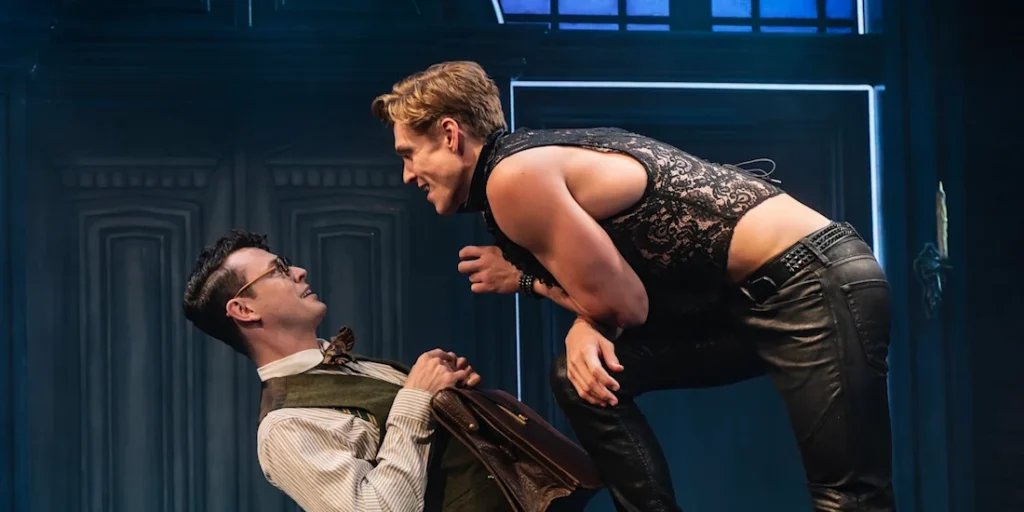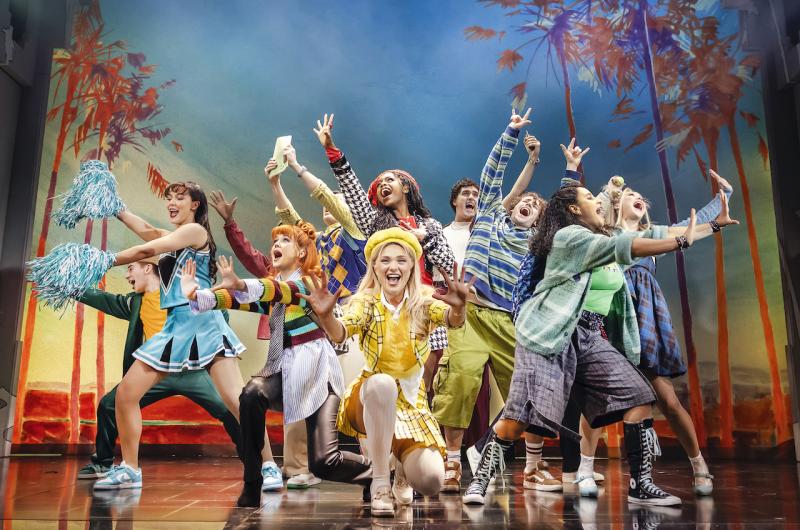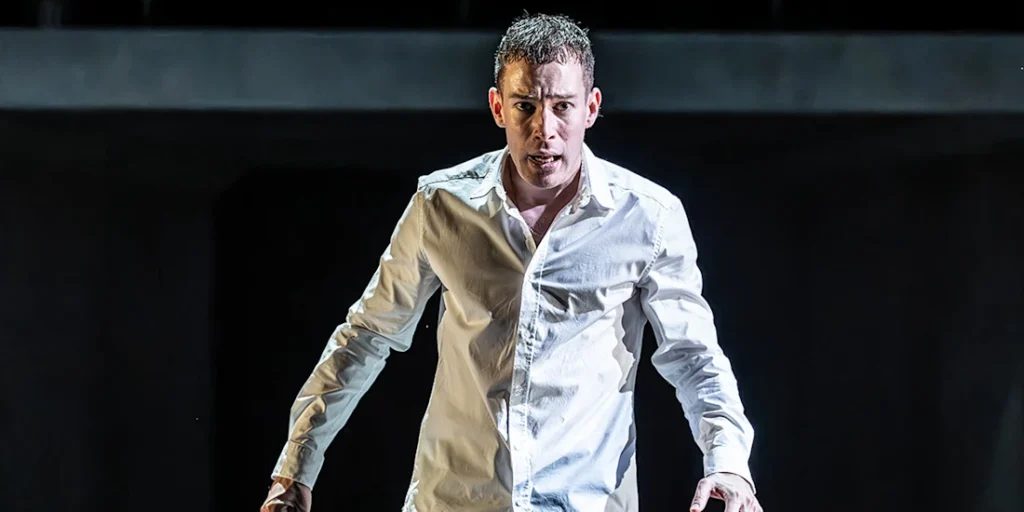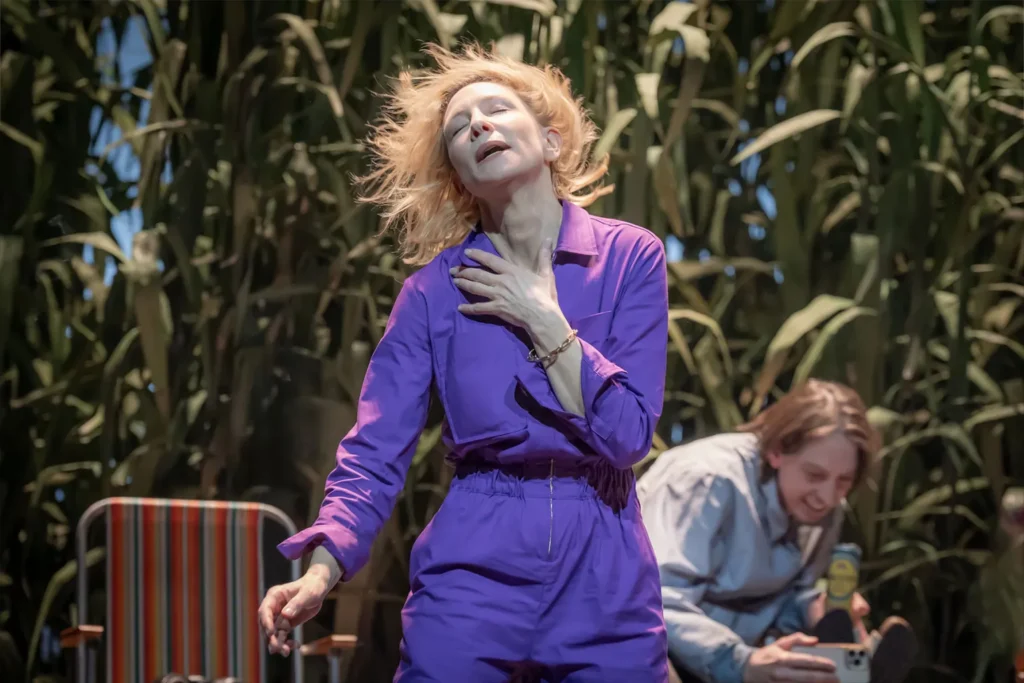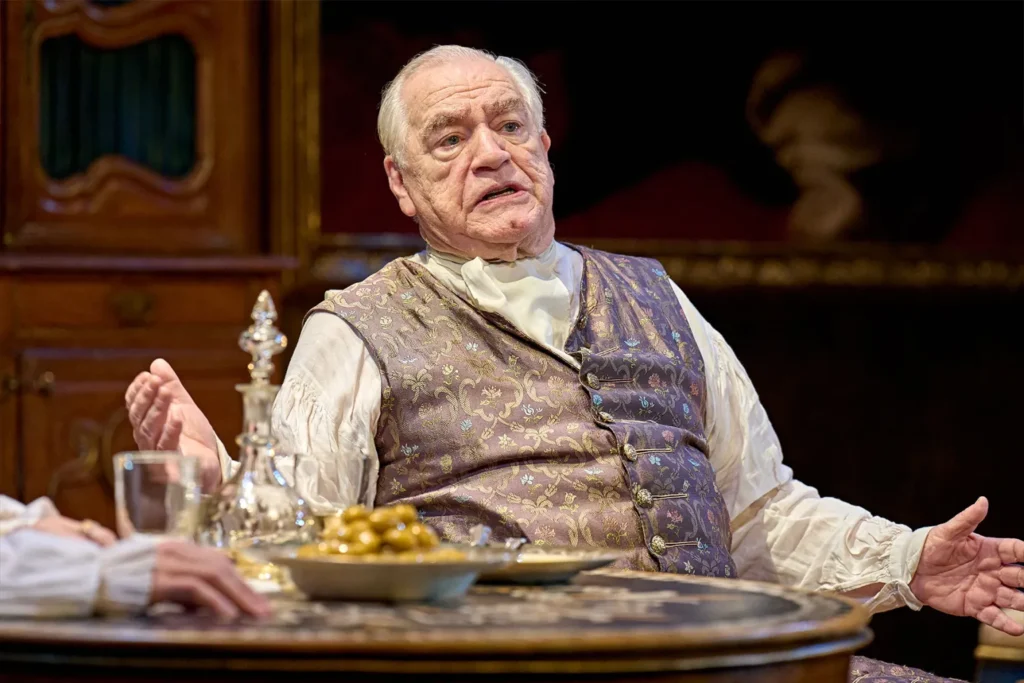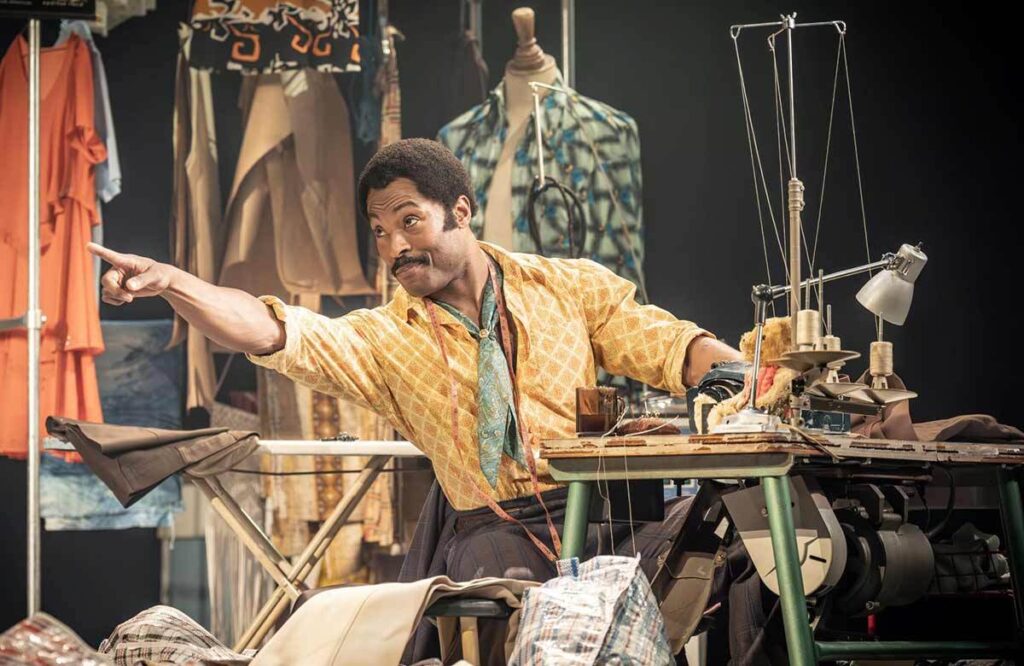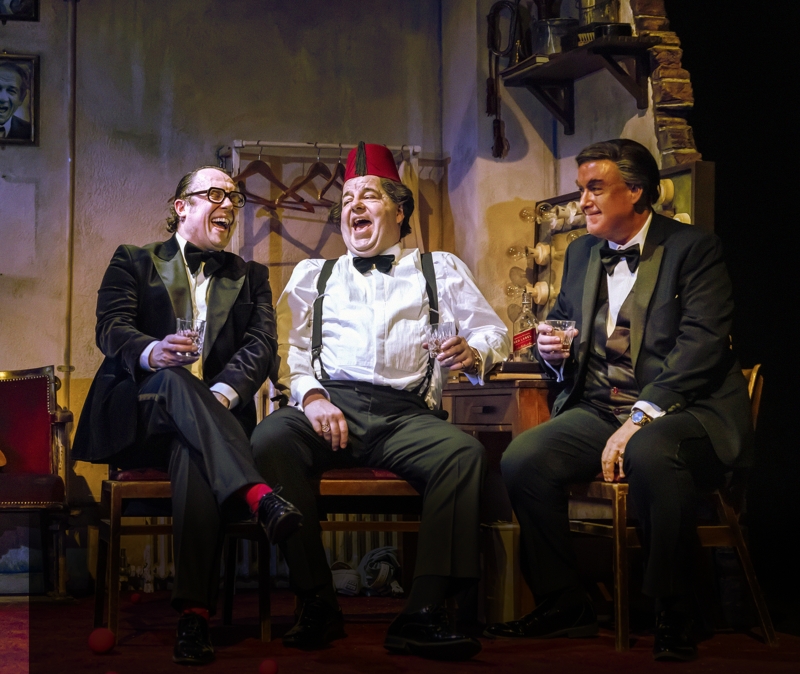New star plays old star in triumphant transfer
Apollo Theatre
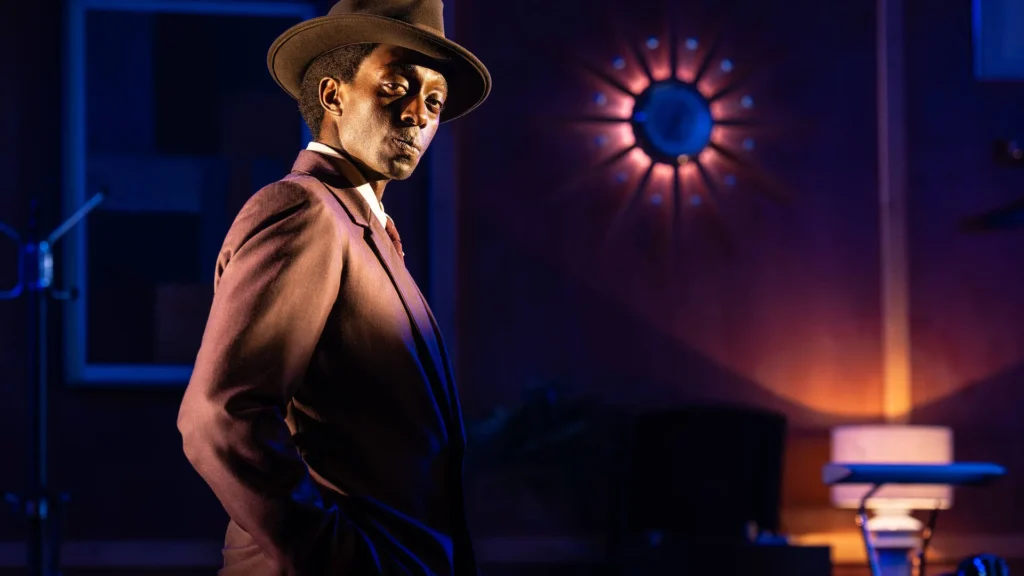
Ryan Calais Cameron‘s Retrograde, which centres on a pivotal moment in Sydney Poitier‘s early career, appears to have gone even better at the West End’s Apollo Theatre than it did when first seen at The Kiln. Some reviewers returned for a second bite, some media sent new writers, and The Guardian opted out, deeming one review back in 2023 to be enough. All the critics loved the script and the star Ivanno Jeremiah who plays the great actor. In the play, Poitier arrives at a Hollywood office expecting to sign a simple contract for a new film only to come under pressure from both a lawyer and a scriptwriter friend to sign an oath of loyalty and to denounce the activist and prominent black performer Paul Robeson. There are clear but unstated parallels with today when people are under pressure of ‘cancellation’ if they don’t conform with the views of influencers or indeed President Trump.
[Links to full reviews are included but a number are behind paywalls and therefore may not be accessible]
5 stars ★★★★★
The Telegraph‘s Dominic Cavendish declared: ‘This darkly comic three-hander … is still a must-see piece of theatre’. ‘The piece brilliantly builds and builds,’ he continued, ‘combining fact with fiction, and fusing jittery wisecracking worthy of Mamet into something nerve-shredding, with seismic ramifications about US culture, and who owns it.’ As for the cast, ‘As well as showcasing Ivanno Jeremiah’s performance as Poitier, Oliver Johnstone and Stanley Townsend now take on the pincer-like roles of screen-writer Bobby and studio lawyer Mr P`rks – and find more detail, nuance and wit in them.’
Maygan Forbes at WhatsOnStage wrote, ‘Balancing precision with fluidity, every movement feels intentional and emotionally charged. Even throughout the comedy, there is an upset that hovers over the stage and a fear that something is about to go very wrong.’ She concluded, ‘Calais Cameron consistently shows up as a writing force to be reckoned with. The acerbic one-liners, the comedy underpinned by threat, and the witty playwriting not only captivates, but also confronts and challenges the audience to address their own societal blind spots. His status as a trailblazing voice in contemporary theatre echoes Poitier’s own groundbreaking journey.’
4 stars ★★★★
‘Retrograde is fast on its way to becoming another vital and vibrant classic,’ declared Anya Ryan for LondonTheatre, calling it ‘a complex, knotty play with zingy, quick-fire dialogue.’ She continued, ‘Amit Sharma’s production is a slow-burn conversation. But the high stakes of the drama are always there’.
Nancy Durrant for The Observer praised the writing: ‘Calais Cameron’s script, echoing the fast-talking, wise-cracking style of the era’s movies, fairly crackles. It’s talky but funny, entertainingly sweary (never Poitier, at least almost never) and saturated with what we’d now call micro-aggressions, not all of which are all that micro.’ Of Ivanno Jeremiah she said, ‘It is a stonking performance – you can’t take your eyes off him, and when Poitier allows his emotions to propel him, Jeremiah commands the stage completely.’
Time Out (no reviewer credit) picked out the star performance: ‘it’s Ivanno Jeremiah as Poitier who is completely transfixing. He’s one of those actors that has proper presence, captivating the moment he steps on stage. One of those actors who can take a long stretch of silence – Sidney considers whether to sign a piece of paper – and make it one of the most riveting moments of the play.’
‘it’s part thriller, part melodrama — the wisecracking, racially-charged dialogue full of heightened cinematic crackle and snap,’ declared Nick Curtis in The Standard. Anya Ryan for LondonTheatre called it ‘a complex, knotty play with zingy, quick-fire dialogue.’ She continued, ‘Amit Sharma’s production is a slow-burn conversation. But the high stakes of the drama are always there’.
The Independent‘s Alice Saville decided, ‘This isn’t a morally complicated story, really. But it’s a hugely satisfying one – a well-crafted period piece with lots to say about the present-day pressures on minority artists at the mercy of corporate agendas. And it’s lit up with so many moments of pure, awkward, hilarity, too: as when a mortified Bobby is forced into a rendition of Belafonte’s “Day-O” by his silver-tongued boss – realising just how uncomfortable it is to sing along to someone else’s tune.’
‘Is there grandstanding in the script?’ asked Dominic Maxwell in The Times, ‘A bit. But the evening earns it not just with the righteousness of Poitier’s perspective but also with the wit of the writing and playing.’
Laurie Yule for The Stage pointed out: ‘There are nods to cinema: snappy lighting from Amy Mae; a moment of interminable silence where Sidney is under pressure to sign a loyalty oath; and Beth Duke’s sound design uses a ticking clock to build tension.’ He ended’ ‘It’s a passionate work that ends with a clarion call to artists to hold to their principles and harness their potential for change – and it achieves that rare feat of being fun, cerebral and poignant.’
Alexander Cohen at BroadwayWorld found: ‘It’s curiously old school: slap happy dialogue is soaked in vinegary wit unfolding in real time over a snappy ninety minutes.’ Chris Omaweng at LondonTheatre1 noted: ‘the implications – and applications – of the decisions faced by Poitier back then still resonate today: to what extent is it appropriate to compromise in order to realise one’s ambitions? There are no clear cut answers in this nuanced and engaging production.’
You may be interested that Arifa Akbar gave retrograde at The Kiln 4 stars in her Guardian review.
Critics’ average rating 4.2 ★
Value rating 56 (Value rating is the Average Critic Rating divided by the typical ticket price)
Retrograde is at the Apollo Theatre until 14 June 2025. Buy tickets from the theatre here.
Read Paul Seven Lewis’s review of Retrograde at The Kiln here.
If you’ve seen Retrograde at The Apollo Theatre or The Kiln, please add your review and rating below
